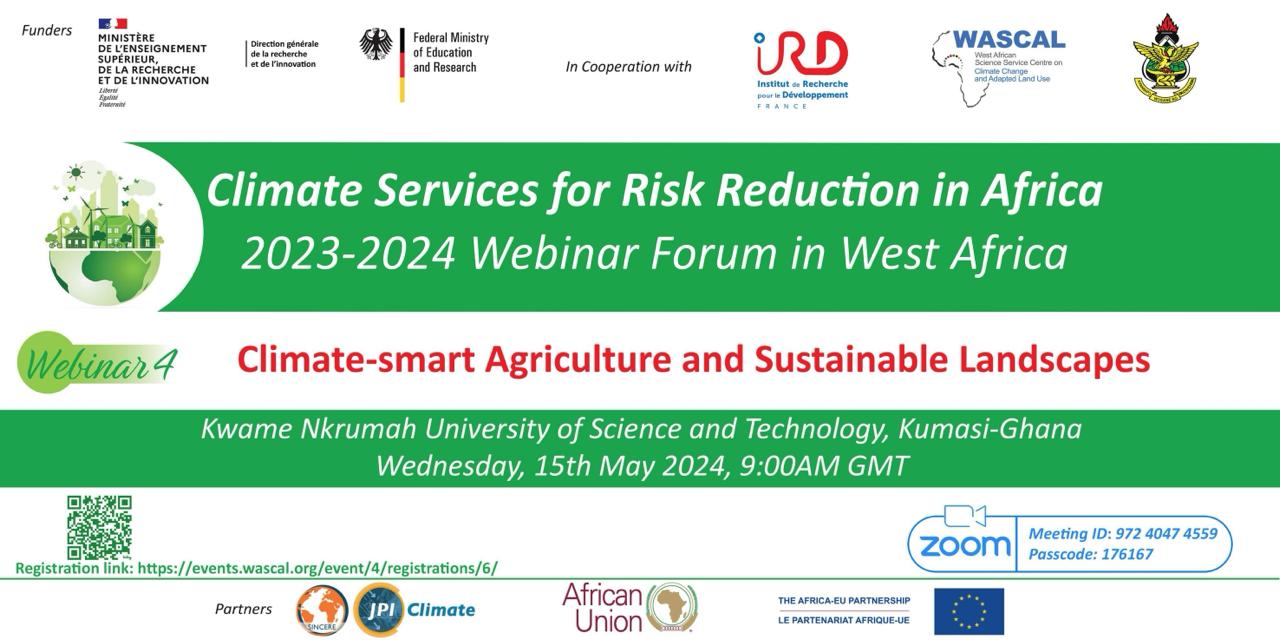
The objective of the third CS4RRA webinar was to provide a comprehensive understanding of the issues, solutions and needs related to climate-smart agriculture and sustainable land use management in West Africa, helping all stakeholders develop effective strategies to meet the challenges of climate change and land use change in the region. That third webinar covered a range of topics to address the complex challenges and opportunities.
The three plenary keynotes covered the following topics:
- Importance of sustainable land use management: Explaining the importance of sustainable land use management, highlighting how it can help mitigate and adapt to climate change while preserving ecosystems and biodiversity, in both coastal, urban or rural areas.
- Principles of climate-smart agriculture: Present the fundamental principles of climate-smart agriculture, involving (agro)forestry and livestock, including adaptation, mitigation and resilience strategies. Emphasize the importance of balancing food security, soil restoration and environmental sustainability.
- Policy and regulatory frameworks: Analyze existing policies and regulations related to climate-smart agriculture and land-use management in African countries. Identify gaps and potential areas for improvement.
These presentations highlighted the importance of gender-sensitive approaches and social inclusion in agricultural and land-use projects, as these aspects are essential for sustainable development. These presentations were followed by two parallel sessions:
